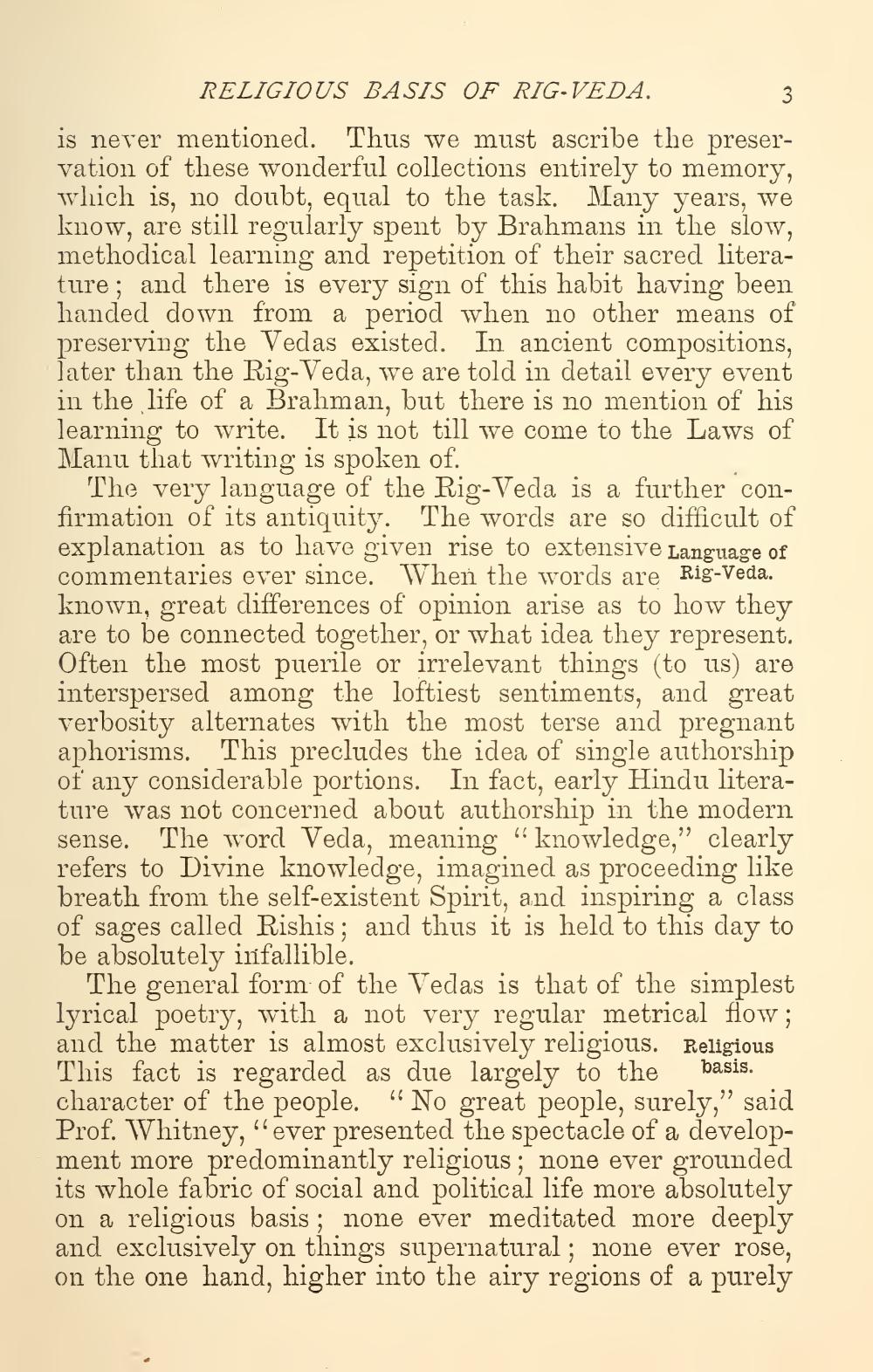________________
RELIGIOUS BASIS OF RIG-VEDA.
is never mentioned. Thus we must ascribe the preservation of these wonderful collections entirely to memory, which is, no doubt, equal to the task. Many years, we know, are still regularly spent by Brahmans in the slow, methodical learning and repetition of their sacred literature; and there is every sign of this habit having been handed down from a period when no other means of preserving the Vedas existed. In ancient compositions, later than the Rig-Veda, we are told in detail every event in the life of a Brahman, but there is no mention of his learning to write. It is not till we come to the Laws of Manu that writing is spoken of.
3
The very language of the Rig-Veda is a further confirmation of its antiquity. The words are so difficult of explanation as to have given rise to extensive Language of commentaries ever since. When the words are Rig-Veda. known, great differences of opinion arise as to how they are to be connected together, or what idea they represent. Often the most puerile or irrelevant things (to us) are interspersed among the loftiest sentiments, and great verbosity alternates with the most terse and pregnant aphorisms. This precludes the idea of single authorship of any considerable portions. In fact, early Hindu literature was not concerned about authorship in the modern sense. The word Veda, meaning "knowledge," clearly refers to Divine knowledge, imagined as proceeding like breath from the self-existent Spirit, and inspiring a class of sages called Rishis; and thus it is held to this day to be absolutely infallible.
basis.
The general form of the Vedas is that of the simplest lyrical poetry, with a not very regular metrical flow; and the matter is almost exclusively religious. Religious This fact is regarded as due largely to the character of the people. "No great people, surely," said Prof. Whitney, "ever presented the spectacle of a development more predominantly religious; none ever grounded its whole fabric of social and political life more absolutely on a religious basis; none ever meditated more deeply and exclusively on things supernatural; none ever rose, on the one hand, higher into the airy regions of a purely




